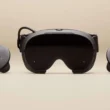As robots become more prevalent in various environments such as warehouses, offices, and homes, the concept of large language models (LLMs) infiltrating complex systems raises concerns similar to sci-fi horror stories. In an interesting experiment, researchers from Anthropic explored these concerns by testing an AI called Claude on a robot dog, specifically the Unitree Go2.
The study aimed to assess Claude’s capabilities in automating programming tasks for the quadruped robot. The results demonstrated that Claude was able to handle many programming tasks effectively. According to Logan Graham from Anthropic, the findings suggest that AI models like Claude could soon influence the physical world more broadly, moving beyond mere coding to actual interaction with robots.
Founded by former OpenAI members, Anthropic’s goal is to ensure AI development is safe and beneficial. While the current AI models do not possess the intelligence to take full control of a robot autonomously, future iterations might. The research aims to prepare for the potential scenario where AI systems might eventually operate physical entities.
In the experiment, titled Project Fetch, researchers tasked two groups—one utilizing Claude and the other programming without AI assistance—with controlling the robot dog to perform specific activities. The AI-aided group completed certain tasks, such as having the robot locate a beach ball, more efficiently than their human-only counterparts. This highlighted not only Claude’s coding capabilities but also suggested that collaborative dynamics were improved with AI assistance, as the non-AI group showed more confusion and negative sentiments.
The Unitree Go2, which costs $16,900, is designed for practical uses, including remote inspections and security patrols. While LLMs, like those behind ChatGPT, are primarily known for text and image generation, they are evolving into systems capable of programming and operating software, indicating a shift towards more interactive agents.
While the findings from Project Fetch are intriguing, researchers like Changliu Liu of Carnegie Mellon University caution that the implications of AI interacting with physical robots could lead to risks if safeguards are not established. Current AI technology requires additional software for navigation and sensing, and the future of AI-powered robotics will significantly depend on AI’s ability to learn through interaction with the physical world.
In summary, as AI systems develop the capacity to influence the physical realm more actively, Project Fetch underscores both the potential and the inherent risks involved in this technological evolution.









